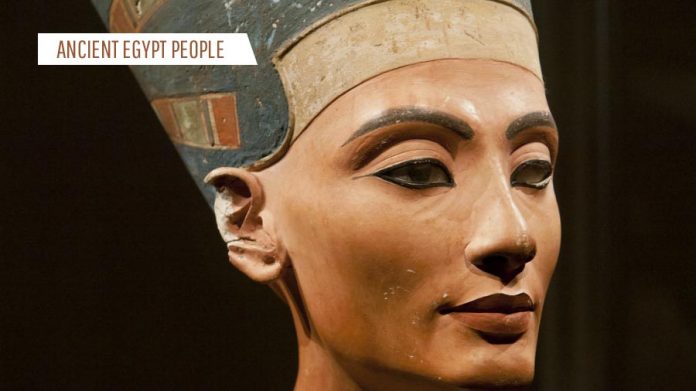Egyptian leaders were appointed pharaohs in ancient times. Pharaohs were kings’ equal, and they were the only ones to be important and honored. For around three thousand years, they dominated Egypt. Pharaohs were forced to keep the royal bloodline and had to marry their siblings sometimes as a result. The pharaohs of Egypt were considered Gods, and the people of Egypt had the odd custom of creating mommies to express reverence for the deceased. There are also plenty of these mummies today.
While Egypt has done a lot in several areas, for example, science, literature, and philosophy, its architecture and objects that distinguish Egypt from elsewhere are recognized in particular. Here we assembled a list of the best ten of Egypt’s most famous people.
10. Tutankhamun
| Born: | Amarna |
| Died: | Ancient Egypt |
| Nationality: | Egyptian |
| Known For: | Pharaoh for ten years |
A very young pharaoh, Tutankhamun, and his half-sister, Ankhesenamun, were born in 1332 BC. He was married off very early. At the age of 18, he died. During his reign, the Egyptians transformed the deity from the god of Aten to the god of Amun. He constructed temples for the god of Amun and then called himself Tutankhamun, which meant Amun’s living portrait. He tried very hard to let the Kingdoms survive in harmony, but despite these attempts, the economies of individual kingdoms were nevertheless undermined by many conflicts.
He was physically disabled but considered a great consultant and philosopher, as the flowers found in his tomb indicate that many people loved him. It is now unclear why he died. According to reports, his grandfather’s wife may have killed him on his throne, but this is unsubstantiated.
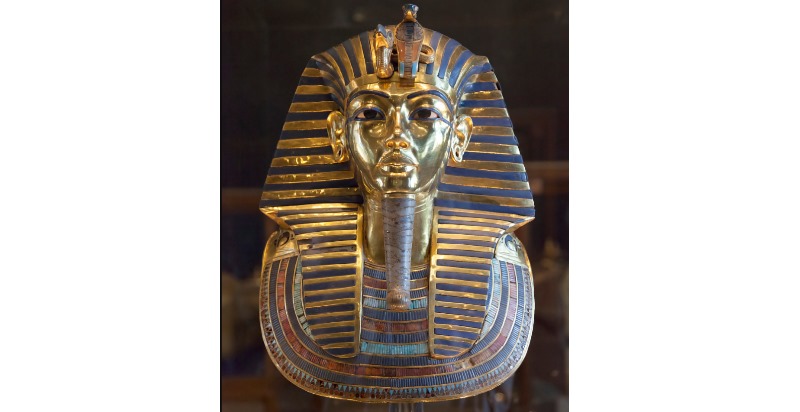
9. Ramses II
| Born: | C, 1303 BC |
| Died: | 1213 BC (aged approximately 90) |
| Nationality: | Egyptian |
| Known For: | Battle of Kadesh |
Ramses II was the greatest Egyptian Pharaoh of his time. At 14, his father made him a prince and, after the death of his father, he governed for six decades. He constructed a lot of monuments and temples early on in his rule to support the Egyptian civilization. He waged several wars and, until his death at the age of 90, enriched Egypt with rich wealth.
Ramesses II led several military excursions into the Levant and reaffirmed the dominance of Egypt over Canaan. He also conducted expeditions in the south into Nubia, of which Beit El-Wali and Gerf Hussein had inscriptions. In the early part of his rule, cities, temples, and monuments were constructed. He made his Nile Delta capital the City of Pi-Ramesses, and he used it as the basis of his Syrian campaigns. In late adolescence, he was supposed to take the throne, and from 1279 BC to 1213 BC, he was known to govern Egypt.
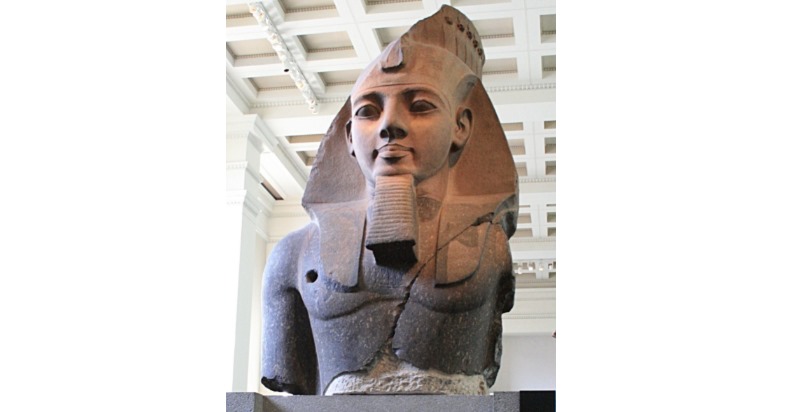
8. Nefertiti
| Born: | C. 1370 BC Thebes |
| Died: | C. 1330 BC |
| Nationality: | Egyptian |
| Known For: | Painted Sandstone Bust |
Nefertiti’s royal bloodline cannot be verified, but she claimed to be the daughter of Ay and his wife. She became the Akhenaten’s (emperor) imperial wife and was accompanied by six daughters. Ancient pictures demonstrate that she worshipped and instructed her husband to worship the sun god. She was thought to be co-regent with the Pharaoh after her husband’s death. She had been a brilliant leader.
Nefertiti may be the ruler named Neferneferuaten. Some theorists think that Nefertiti was still alive and had an influence on the younger kings. This will have ended by year 3 of Tutankhaten’s reign and perhaps Nefertiti’s survival (1331 BC). Tutankhaten switched to Tutankhamun that year. This shows his return to Amun’s official worship and his abandonment from Amarna to return Thebes to the capital.
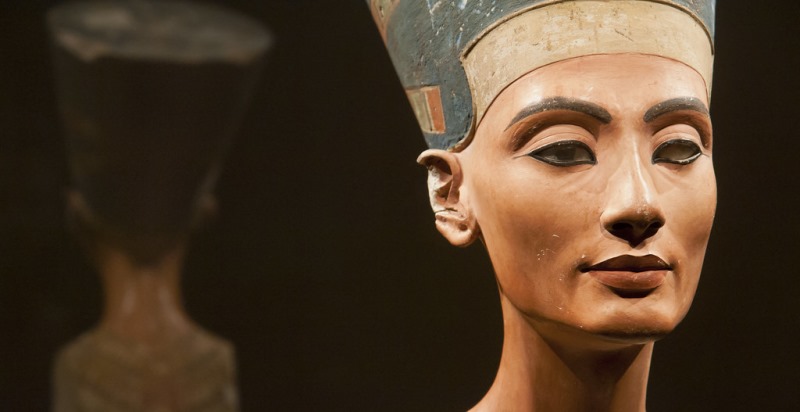
7. Hatshepsut
| Born: | C. 1507 BC |
| Died: | 1458 BC (aged 50) |
| Nationality: | Egyptian |
| Known For: | Longest-reigning female pharaoh |
Hatshepsut acted as a pharaoh until Pharaoh Thutmose III was old enough to assume over. For almost two decades, she was the Pharaoh, and the people were prosperous and respected in her reign. Egypt was becoming peaceful, prosperous, numerous buildings and sanctuaries were built, and the nation became economically secure under her leadership. She was the wife and sibling of Thutmose II and proceeded to be Thutmose II’s son, Thutmose III.
During the Second Middle Period, the trading networks were re-established, and the riches of the 18th Dynasty were built during the Hyksos Conquest of Egypt. She supervised the planning and financing of the Land of Punt mission. During the 9th year of Hatshepsut, the trade expedition to Punt was held. Thutmose III stripped her paintings and sculptures from the temple walls and other buildings after her death.
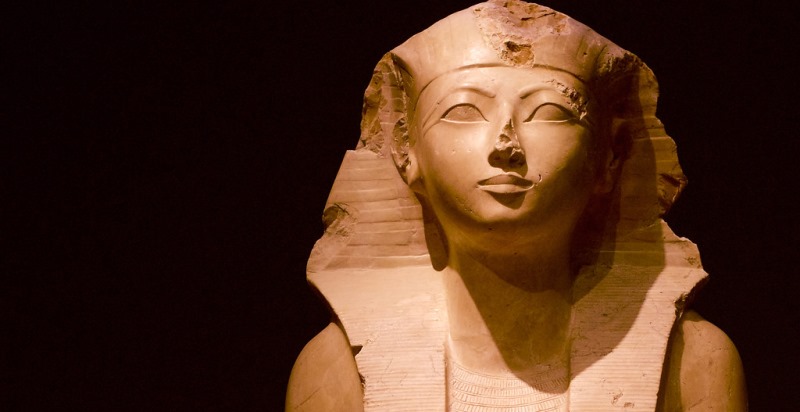
6. Cleopatra
| Born: | 69 BC, Alexandria, Egypt |
| Died: | August 30 BC, Alexandria, Egypt |
| Nationality: | Macedonian |
| Known For: | Relationships with Julius Caesar and Mark Antony |
Cleopatra’s beauty and power became well known for her, portrayed in different paintings and sculptures. Cleopatra was also well-known in several other domains, and she devoted her time to Egypt’s administration during her rule. Her desire to talk in many languages may have been of assistance to her in this mission. As an administrator, she was very good at designing certain policies that made Egypt’s economy flourish. During her reign, silver, copper, and other metal coins with her image engraved on them, but no gold coins.
Her children had been taken care of by her dad’s second wife after she committed suicide. Her brothers and her son ruled over Egypt after her death, and she was the last Egyptian queen. Her affairs were also well known with the Roman leaders Julius Caesar and Mark Antony.

5. Akhenaten
| Born: | 1380 BC |
| Died: | 1336 or 1334 BC |
| Nationality: | Egyptian |
| Known For: | Pharaoh of Egypt |
Akhenaten was a pharaoh from Egypt who died in 1332 BC. He was considered to revolutionize the polytheist paradigm and instead introduce an element of the Sun god to the worship of Aten. He believed deeply that people could adore the sun during this time, which can be seen from art. He built numerous temples, too, to be worshipped by the people. When Aten was followed, several people changed their names.
Eight years before being proclaimed King, shortly after his father’s death, Akhenaten ruled with his father. He was considered to possess the ability to govern, and, with the years passing, Egyptian theology was continually revamped. Many of his forced items on the citizens were discarded after his death, and the temples he created were demolished.
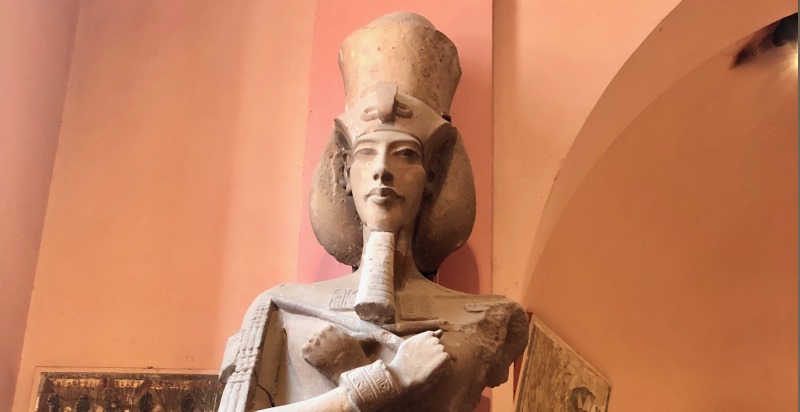
4. Ankhesenamun
| Born: | Thebes |
| Died: | 1323 BC, Memphis |
| Nationality: | Egyptian |
| Known For: | Tomb Treasures |
Egyptian queens were more attractive than their male counterparts. Ankhesenamun was a queen born in 1348 BC and died when she was 26 years old. She was the sister and wife of the well-known Tutankhamun pharaoh. After her mother’s death, she was married to other pharaohs as well as her father.
Pharaohs were usually married to family members like cousins or siblings. They thought the royal bloodline would be pure and uncontaminated in this respect, and the monarch would still belong to the King’s own house. The disadvantage of this was that the kings then murdered their siblings to rule Egypt itself. A very young woman died, and little was published about her, although it was rumored she had children with her father.
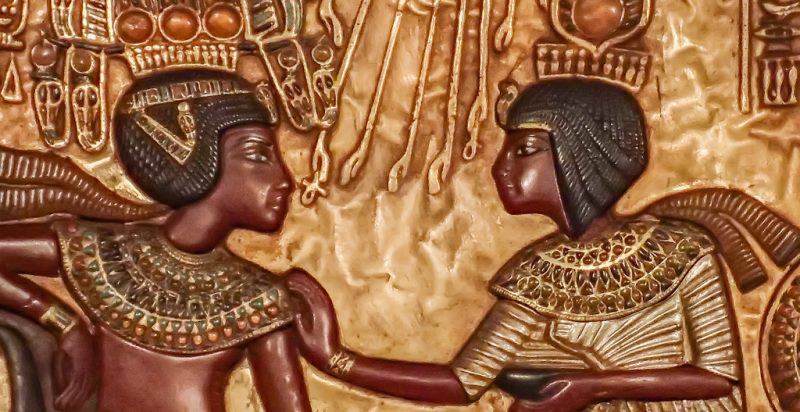
3. Maimonides
| Born: | 1138, Córdoba, Spain |
| Died: | December 13, 1204, Fustat, Egypt |
| Nationality: | Spain |
| Known For: | Jewish Philosopher |
The Jewish scholar Maimonides was very well-known who was born in Spain in 1135. In extension to being a philosopher, he was both a scholar and physician. When he was very young, he became engrossed in science and philosophy. He was supposed to uphold Ganoic custom, which many people felt was more important in Muslim rule.
His personality and philosophy are expressed in many novels. Maimonides was selected as Egyptian Jews’ leader, and he is thought to be chosen not only for his leadership but also for his love for his country. He was the merchant of his parents and, after Maimonides(his brother) had died, he continued to study medical science and grow as a doctor. He was also a trader and familiar with Greek medicine.

2. Ibn Khaldun
| Born: | May 27, 1332, Tunis, Hafsid Sultanate |
| Died: | March 17, 1406, Cairo, Egypt |
| Nationality: | African |
| Known For: | Muqaddimah, (Prolegomena) |
Historian Ibn Khaldun was born in Egypt at the start of 1332 and became the pioneer of modern sociology. He was born in a wealthy family and was also educated, but he loved to know himself from many good mentors. Although he was wealthy, he had several difficulties when growing up and losing his parents in his early teens.
His intellect and education were best recognized, and he continued his career in politics. The dynamics in politics changed the way he saw people. He was even jailed because he protested against something that he thought was false. He went on to become a scholar after his release from prison. He has written several books to impart his experience, and these books still matter to today’s readers. He was highly acclaimed and regarded as the biggest philosopher of this day.

1. Moses
| Born: | Goshen (Lower Egypt), Ancient Egypt |
| Died: | Mount Nebo, Moab |
| Nationality: | Israelite |
| Known For: | Prophet |
In 1391 BC, Moses was an Egyptian religious leader. He was born in Goshen country. He was also considered the lawgiver of Israel. Slavery was popular in Egypt during his day. Masters of Slavs were humiliated and viewed their captives as prey. Though Moses came from a family of Hebrew slaves, he was born and gave royalty all the advantages. He was well educated and thought of as the prince’s son. He fled away to the southern islands where nobody could locate him after learning about his birth and his original relatives.
Later, God ordered him to support other slaves who in Egypt were also oppressed. He returned to Egypt and did God’s task to help these slaves escape after what he thought was God’s terms. He became the prophet of all Abrahamic faiths, very similar to Judaism. He then founded a Hebrew culture.

Conclusion:
Egypt was laid on the map by these famous Egyptians. The country’s history and culture are rich and were well ahead of time. The Egyptians were the first to use toothpaste, sheets of the bed, and many more things still used by today’s people. In construction, they were exceptional. Many complex and geometrically precise buildings, like pyramids, were constructed by them long before modern technology was introduced, and many of these buildings still exist today.
